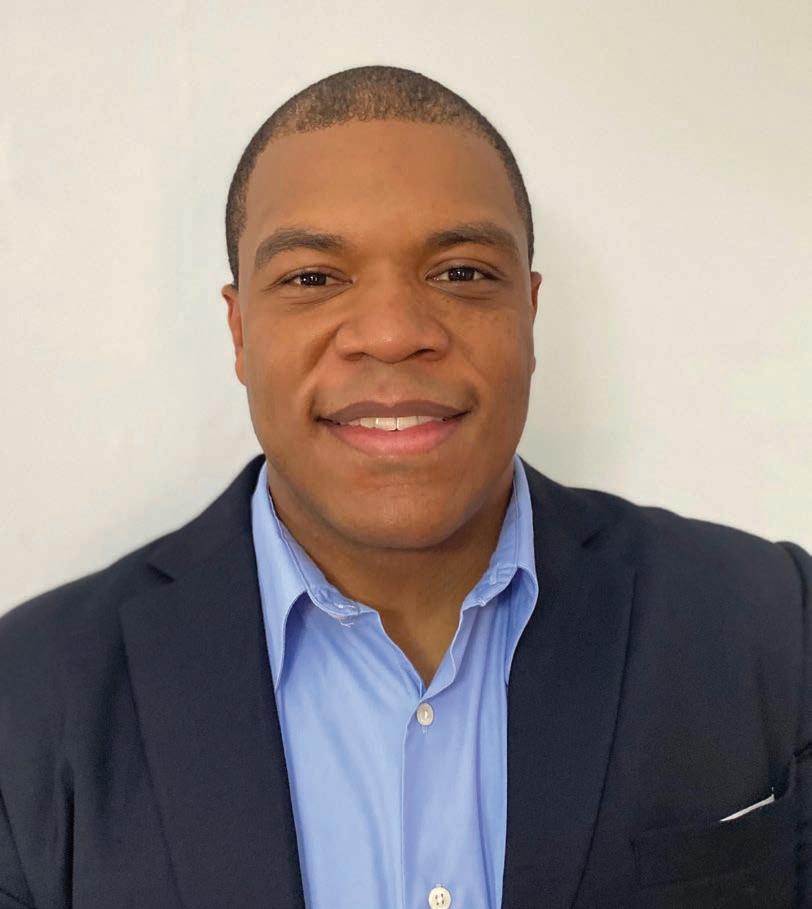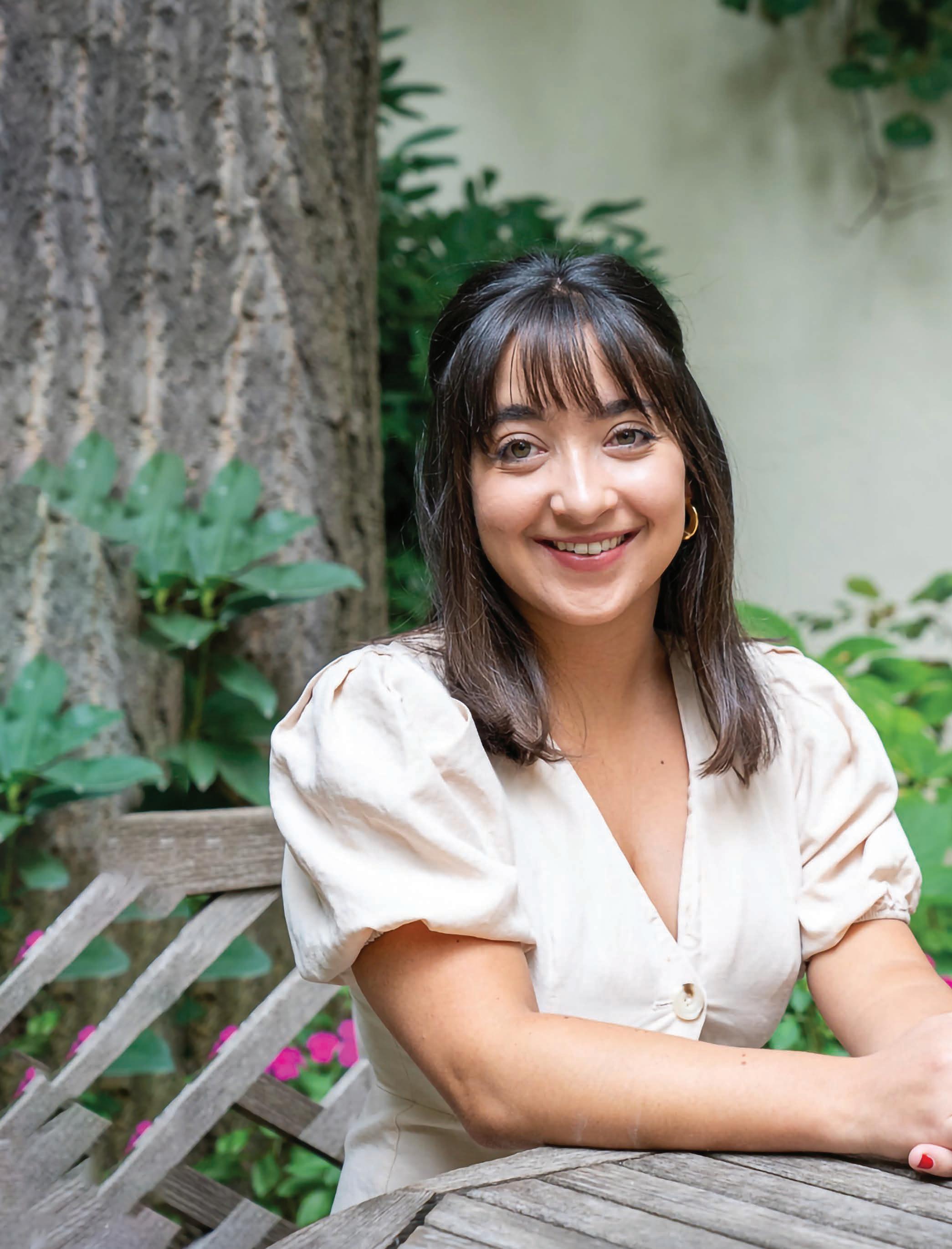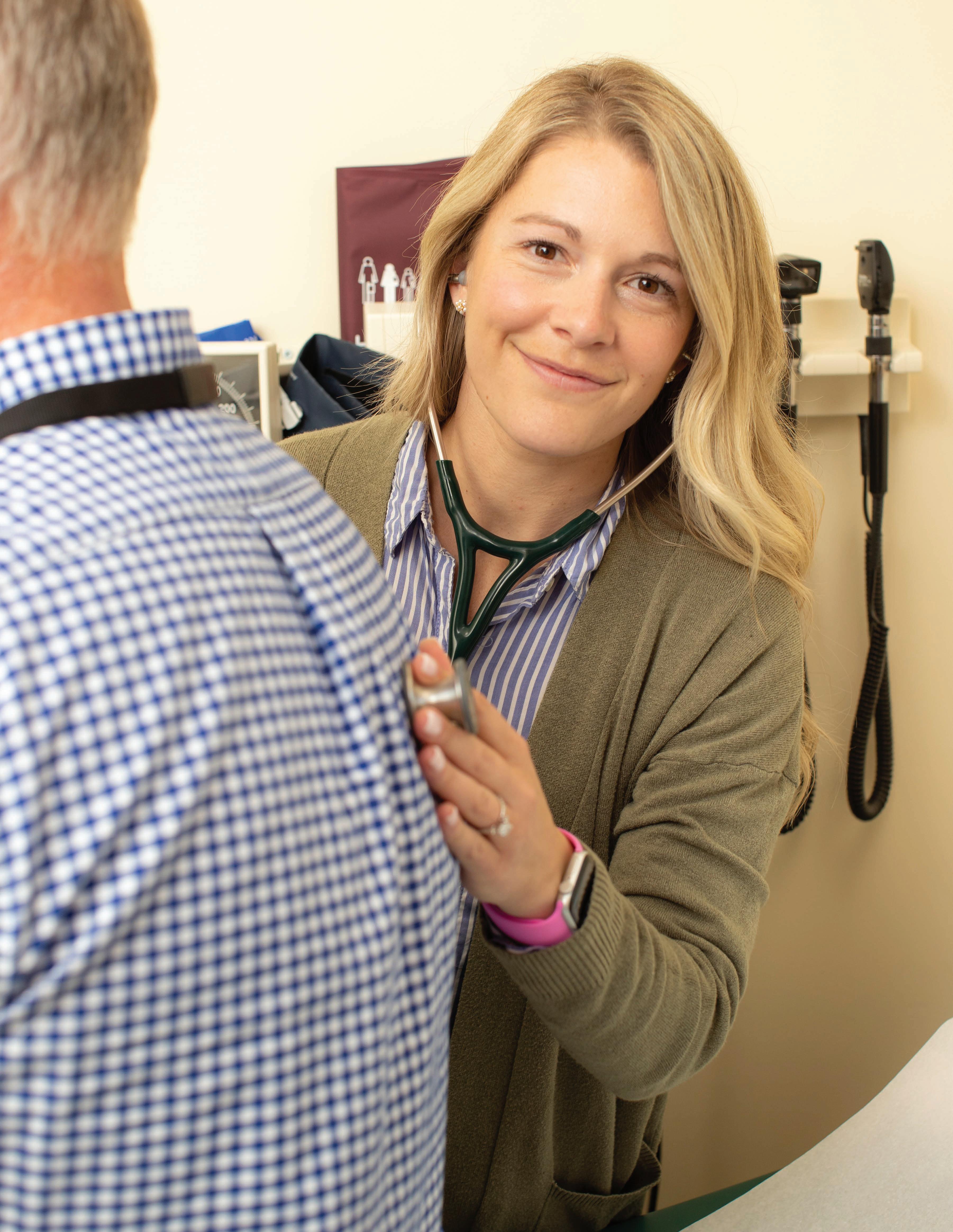
19 minute read
The Impact of Integrated Academic Support
Harris Williams ’10
sCaling iMpaCt: the deMoCratization oF learning
Advertisement
When Robert Frost wrote “Two roads diverged in a wood, and I — I took the one less traveled by, And that has made all the difference”, it is assumed he had a choice. Sometimes, we, like Frost, encounter a fork in the road and have the privilege of choice. Other times we simply see that the easy road is closed. For Harris Williams ‘10, his journey to Proctor and through Boston College into the professional world as a professor and start-up founder has been filled with both self-acknowledged privilege and unforeseen challenges.
As an eighth grader from Lynn, Massachusetts, Harris and his parents arrived on Proctor’s campus for their tour in the midst of a historic snowstorm. Proctor’s admissions office had called to cancel the tour due to the weather, but the Williams family missed the call and showed up to an unplowed campus. A cobbled together interview and tour did not dissuade Harris or Proctor from kindling a relationship that continues to this day. Harris reflects, “Proctor was the only school that accepted me, and yet with all of the doors that closed for me, the right door opened.”
Like so many students, it was the relationships Harris formed with his peers and the support he received from the adults in his life that he attributes to his growth, “One of the greatest things I appreciate about Proctor is that everybody was human in how they approached their relationships with one another. The support I received in the dorm from Scott and Lindsey Allenby in MLS during my first two years, and Caddie Jackson and Patrick Donnovan in Carr House during my junior and senior years was incredibly influential in shaping me as a human. Likewise, coaches Chuck Reid and Ben Rulli saw there was more in me than I ever saw. The same was true with my friend group - Mark Woo ‘10, Orlando Aponte ‘10, and Mirwan Abid ‘11 - the four of us were from as different backgrounds as you could imagine, but we learned about each other’s cultures, not in an academic sense, but a human sense. We saw the potential in each other and rooted our friendship in pushing each other to be our best.”
Following four years at Proctor, including a leg injury during his junior year that would keep him out of his entire senior football season, Harris matriculated to Boston College where he would become one of the only Boston College football players to earn a degree in Computer Science. “I took a Photoshop and Adobe Flash course at Proctor that exposed me to a tiny little bit of programming, and I was hooked. I had in my mind that I would go on to play football and become a doctor (studying pre med), but that little exposure to programming changed the course of my life quite dramatically.”
Injuries continued to provide “character building opportunities” for Harris throughout his years at Boston College. “When you dislocate your wrist during your freshman preseason camp and miss that whole season, or break your leg, or have a surgery that forces you to relearn how to walk, it reveals what you want and what you don’t want in life. Each injury affirmed to me that I loved this medium of competition and that I wanted to push myself to do my best against the best.” Six surgeries and two season-ending injuries later, Harris appealed for, and was granted, a second medical redshirt year, completing his career as a team captain and offensive lineman in 2016 with both an undergraduate degree in Computer Science and an MBA from Boston College.
It was during his fifth year while taking his first corporate finance class in his MBA program that Harris had an epiphany. “I was fully set on making it in the NFL, but when I realized the scale of the numbers on an Apple spreadsheet, my mind was blown. What I thought was big (an NFL salary and fame), I saw something bigger. My mind expanded at that moment as I began to understand how impactful business could be with the right mission. I chose the business route realizing I could help a lot more people.”
Harris’ first business endeavor was developed during his final season at Boston College as he designed a software that would allow football coaches and players to learn plays on a mobile device. After three years, the company scaled to a global level, but would eventually run into financial struggles. “Business school taught me how to take a business from 100-1000, but not from 0-100. And making something out of nothing, going from 0 to 100, is the hardest. I learned so much during the process: how to build a team, how to market it, and how to go out to the market while accepting intellectual rejection. I learned there is this whole
“Often, we set our sights on something, and look at the reward at the end without accepting the struggle along the way. Proctor gave me the support and tools to find success, but I had the mindset that if I work hard enough, I will reach my goals. I had to break the shackles of that type of entitlement, to embrace the notion that sometimes hard work is not enough, and to simply learn from the journey.”
new realm of competition that I really enjoy.” In need of a steady source of income, Harris chose to take on an adjunct professor role teaching computer science at Bunker Hill Community College, among the top 10 most diverse colleges in the country. “I could have taken the easy road and signed on with a big tech company, but I wanted to pursue my own business ideas as well. I was 27 at the time and when I stepped foot into the classroom with half the students the same age as me or older and majority being first generation immigrants or college students, I became acquainted with individuals from around the world. I saw there was a huge issue out there to solve regarding access to technology. Recognizing that in the field of computer science and IT, your zip code has a greater impact on your success than your skill, I knew I wanted to work toward a solution.”
Accelerated by COVID-19 and a remote classroom, Harris and his colleagues at Bunker Hill understood they needed to rapidly provide access to computers to their students. “We looked at the big tech companies as a potential solution, but nothing emerged so I took it upon myself to create a platform for our students to have some sort of technology that would allow them to plug in and do their work regardless of the hardware they had access to.” This virtualization of a personal computer reduced the barrier to entry for students, and Harris has since brought his product to Boston College and local school districts. With tens of thousands of virtual computers active and a goal of hundreds of thousands within reach, Harris is realizing an amplified impact of a mission driven business. “Through this project, we are able to open a technological door to underserved communities, all while reducing capital expenditures by more than 70% for school districts. I often think about the scale of impact we can each have in our lives, and I want to operate where both scale and impact are significant. This work is doing just that.”


Seth Richardson ’10
engineering a Creative Future
Nashville. Austin. New York. Los Angeles. Andover, New Hampshire. Arguably, four of the five aforementioned locations are reflexive answers when it comes to producing stars in the music industry. Andover, NH, however, is not to be discounted. That’s because folks like Seth Richardson ’10 are rising through the ranks to help produce widely broadcasted songs and podcasts.
A Portland (ME) native, Seth attended his freshman year at his local high school. It quickly became apparent that the school district was not equipped to accommodate his learning style, so Seth and his family started to evaluate different options. No stranger to the independent school world (his father attended a boarding school), they began to entertain the idea of looking at other educational institutions. Coincidentally, a conversation with neighbor Trilbey Smith ’09 guided him toward Proctor.
After touring a few Lakes Region schools, Seth went on “the typical first tour” of Proctor’s campus. He spent the day shadowing Thomas Jennings ’10 and was able to glean a student’s dayto-day experience. But it wasn’t until he was dropped off at the recording studio that he was sold on what Proctor could become for him. Already interested in recording and being a musician, the smaller building on the eastern edge of campus cemented his decision to spend the next three years in New Hampshire.
“I saw this beautiful recording studio helmed by the one and only Bill Wightman ’73, and that solidified my choice to go to Proctor.”
Bill would prove to be a pivotal player in Seth’s Proctor experience. In fact, Bill continues to affect the former Hornet. “I owe a lot of my fundamentals as a recording engineer to Bill and to that program,” he noted. “To this day, because of what I learned at Proctor, I have 4-8 more years of experience than my peers. Bill and the recording program taught me the fundamentals of learning how to be a good assistant engineer, attention to detail, and other transferable skills that all helped me in (and after) college as a production assistant.” “He was simply a really good person who treated everyone with kindness and respect. I’ve modeled a lot of the values I try to uphold as an adult after him.”
In addition to staying busy with the music program and playing with the jazz/rock ensemble, Seth participated in European Art Classroom. “The experiential learning programs at Proctor are important because being well traveled as a teen expands your thinking to a global scale. When you’re an adolescent, everything is so ‘you-centric,’ so to be given that perspective is beyond valuable.”
Following his graduation, Seth took a semester off and worked on his music before matriculating to Berklee College of Music, where he majored in the labor-intensive study of music production and (application based) engineering. A highly selective program, he applied in his second semester and was admitted, a feat he largely credits to Bill and Proctor’s recording program.
Landing a job after college isn’t the easiest for those in the creative arts sector, but Seth was able to tour with a band before moving to New York in late 2014. Holding down multiple jobs–including work as a DJ and running dry cleaning deliveries–he was eventually offered a position to support a band on a national tour, ultimately solidifying his role in the world of live audio where he worked his way up through the audio engineering ranks. It has not always been easy, though. He learned much in a short amount of time, largely by making mistakes along the way and, yet, persisting with confidence. Eventually, he became a tech director for a popular Spotify segment that ran for two successful seasons before looking over Gimlet Media’s technology in Spotify’s New York City and Los Angeles spaces.
So, what’s next for Seth? Just prior to production, he started a new role as Director of Post-Production with At Will Media. He’s looking forward to growing and thriving in the new position. For current students, he recommends participating in all that Proctor has to offer. “There are a lot of resources at your disposal that you can use to both expand your thinking and your worldview. It’s a great opportunity to figure out what you like doing and what you’re good at doing. Be creative with the things that you identify that can be marketable and that you can monetize, and that can lead to a colorful and fulfilling career.
Charlotte Tweedley ’12
eMbers to Fire: the Journey oF a soCial aCtivist
Sitting down with her, it is immediately apparent that Charlotte Tweedley ’12 is a force of nature. She has an air of confidence, but her natural inclination is to inquire about those around her. So, it is of particular interest to learn this wasn’t always the case.
The first thing you need to know about Charlotte is that she’s a triplet. Her two siblings both attended boarding school for their freshman year of high school, and Charlotte soon realized she wanted to have that shared experience. She was hesitant, however, due to the rigors of academia she had encountered up to that point. “As someone who struggled with ADD and reading comprehension abilities, I didn’t believe in myself in the same way as my siblings,” said Charlotte.
Ultimately, it was a combination of the Learning Skills program, experiential learning, and the ski program that drew the Westport, Connecticut native to Proctor for her sophomore year. The one-onone guidance was a big factor as well, she noted, “The advisory program is very intentional. To be able to have that support and a personal advisor, that’s what hit the nail on the head for me. Younger students and older students form a community, a little family within the larger Proctor family. Karl Methven was one of my champions – I felt like he was a second dad to me while I was at school.”
Charlotte reflects on the role of the entire Proctor community on her learning, “The faculty and staff at Proctor were all so incredible, interesting, and supportive. They facilitate an environment where students can pursue their passions regardless of where they are academically, socially, etc. It’s a challenging environment, but it felt like a nontraditional curriculum at times. Jen Fletcher was my strongest advocate. She let me see that I had good ideas; that I had something to contribute. And Lynne Kenney’s Social Activism class blew my mind because it challenged me to think about things in new ways. We discussed all these issues and inequities around the world that our global community is facing. It helped us see how we can apply our ambitions and skill sets to the world. I felt this inherent responsibility that I wanted to give back.” Charlotte was able to put her knowledge to the test through experiential learning activities, which she cited as being an “incredibly unique part” of Proctor. She was able to learn about another culture in an up-close-and-personal way during a trimester in Proctor en Segovia in 2010. Her time spent on Mountain Classroom the following year, “pushed me beyond my comfort zone at times, but I still think of it as one of the best experiences of my life.”
Upon graduating from Proctor, Charlotte attended the University of Colorado Boulder where she studied International Affairs with a specialization in Latin American Studies and served as a Peace Corps campus ambassador. Inspired by her social activism class at Proctor, and contributing what she could to make the world a better place, she hopped on the global affairs track. She proceeded to study in Cuba for a summer learning term about race, gender, and social dynamics, while learning hands-on about Cuban culture through an anthropology class.
As amazing as it was being out west, Charlotte felt drawn back east to be closer to family. Following college, she applied for jobs in the development sector in New York City. Her mom has worked in various public health roles, so Charlotte tapped into her knowledge and landed an internship working on strategic partnerships and development at Global Health Corps (GHC). During her time there, she was fortunate to work with (GHC) Co-Founder Barbara Bush Jr.
When it was time for a fulltime job, she wanted to give back to her new home (NYC), so Charlotte accepted a job at Success Academy Charter School in the Bronx. She wore numerous hats, from running the parents association, planning events, managing operations, advocating social advocacy with local changemakers, and more. This laid the foundation for the next career move: working at EMpower - The Emerging Markets Foundation to help at-risk adolescents with a focus on education, livelihood, and health. “Their mission really resonated with me,” said Charlotte. “They taught me everything about a public charity. My skill set is relationship man-
“Growing up, I didn’t have a lot of confidence in the classroom. I didn’t think I was smart enough or academic enough to be a top-level student and chase my dreams; now I’m working at a place I dreamed of working when I was a kid. Proctor gifted me with a new way to learn and a new way to view what was attainable.”

agement, program management, and operations, but I went all-in because I really believed in the mission to help enable these individuals to live fulfilled lives.”
After nearly four years at EMpower, Charlotte made the jump to Associate of Strategic Partnerships at The Rockefeller Foundation, a scientific philanthropy that seeks to promote the well-being of humanity throughout the world by making opportunity universal and sustainable. Everything Charlotte had been striving toward and dreaming of funneled into this organization. “My mom was a consultant when she was pregnant with me, so I’ve been a longtime admirer of the foundation. They’ve made a huge global impact, and their mission to improve the lives of people on the planet has always resonated with me. It’s a huge institution, but I’m so happy here.”
In her role, Charlotte helped develop multiple rapid response grantmaking packages to support urgent global issues such as supporting civil society in Ukraine, supporting independent care providers after the overturn of Roe v. Wade, and designing a train the trainer program to help lower income communities become more resilient against natural disasters. After 10 months in this position, Charlotte has advanced in the Foundation to Sr. Associate, Program Strategy where she is working closely with the Executive Vice President and her team to develop the Foundation’s new programmatic, operational, and investment strategies to address climate change.
Looking forward, Charlotte is excited to continue her work at the foundation, and quipped, “There’s a lot of interesting things on the horizon, and I feel fortunate to utilize my skills to help others.” But she often takes time to reflect on the past as well. The 2012 Citizenship Award recipient encourages current Proctor students to take advantage of everything the school has to offer. “Get to know the faculty: pick their brains, ask questions, and use them as a resource for you to help you formulate your ideas and thoughts. Also, always be curious and follow your passion. If that changes, and you need a moment to reinvent yourself, that’s okay!”

Nikki Gorman ’12
getting baCk–and giving baCk–to CoMMunity
No two paths to Proctor are identical. Discovering how one found their way to the school is commonplace in an initial conversation with someone in the community, and the stories are as varied and vast as the individuals who make up Proctor. For Nikki Gorman ’12, the journey to Andover started on the ice.
A native New Englander, Nikki grew up in South Kingstown, Rhode Island, where she learned to hold her own on the ice rink playing against her brothers. A natural at the sport, she eventually played under the tutelage of former Proctor faculty member, Athletic Director, and coach Toby Gibbons. It was Toby who first introduced her to the idea of attending a boarding school in Northern New England. Before she knew it, she was driving to New Hampshire with Toby and his wife, Meredith.
The connection was immediate – Nikki had no chance against kismet. Meeting with other students and talking with faculty and staff members including future hockey coaches, Doug “Dougo” Houston and Christina Dotchin, made it official.
Similarly to folks taking different journeys to arrive on campus, the way individuals spend their time on and off school grounds is unique. For Nikki, time on campus meant time on the rink and on the soccer fields. “I was a big athlete, so the sports teams and having those people become your family meant everything to me,” said Nikki. “Being a part of that team environment, where they (players and coaches) become your family shaped my experience at Proctor. At a boarding school, you become that much closer with your teammates because you’re with them every day, all day.”
Nikki also found support outside of the athletic arena. Longtime faculty member Sarah Will served as her advisor, and was instrumental in shaping Nikki into the person she is today simply by being present for her. The support and guidance of Dougo, Christina, Karin Clough, Karl Methven, and Gregor Makechnie both on and off the ice helped Nikki find her path and inspired her to help others. The most significant impact of all, however, came from the late George Emeny and his wife, Deborah. “The Emenys took me under their wing as if I was their child. They were my Proctor parents. They shaped me while I was at Proctor … they made me feel like I was home.”
Following graduation, Nikki matriculated to the University of Rhode Island in her hometown of South Kingstown. While there, Nikki nurtured that desire to help others that she latched onto while in Andover. A kinesiology major, she served her community by volunteering on campus as a first responder and EMT. That propelled her to a medical assistant position with a spinal surgeon for three years before applying to Massachusetts College of Pharmacy and Health Sciences in Manchester, New Hampshire, where she completed a two-year accelerated program during the pandemic. A job offer from New London Hospital working in Express Care ensured her plans to become a New Hampshire resident, and she and her partner, Ryan Peel ’13, continue to reside in the local area.
“I got into this position to change peoples’ lives and to help them become the best versions of themselves. That’s still my goal,” said Nikki. “That’s why I love what I do. You never know who or what is about to walk through the door. I love being that outlet for people and helping them get where they need to be. It’s important that I can be a person whom they trust. I would love to be in Express Care for a while – I’m really happy where I am now.”
When reflecting back on her time at Proctor and how it led it to where she is now, she emphasized how fleeting the time is on campus. “Time flies! We’re all kind of stuck in the digital space, but take time to look up and show gratitude to faculty and staff. The connections you make at Proctor truly last a lifetime. Enjoy it, take it all in, and don’t be afraid to ask for help, (faculty and staff) are there to help, and that support lasts long after your time as a student.”




